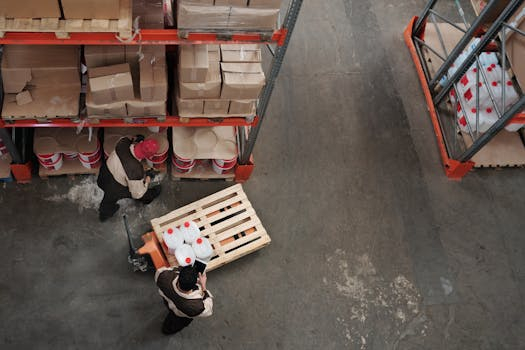How Retailers Are Tackling Supply Chain Challenges
The retail industry has seen remarkable growth and transformation over the years, driven by the increasing demand for convenience and seamless shopping experiences. In this fast-paced environment, retailers face numerous challenges in managing their supply chain efficiently. From inventory management to delivery delays, retailers must constantly adapt to changing consumer behaviors and supply chain disruptions. In this article, we will explore some of the most common supply chain challenges faced by retailers and how they are tackling them to stay ahead in the game.
Understanding Supply Chain Challenges in Retail
Inadequate Inventory Management
One of the major challenges faced by retailers is maintaining the right level of inventory. Overstocking can lead to high storage costs and wastage of resources, while understocking can result in lost sales opportunities and dissatisfied customers. Retailers are constantly looking for ways to optimize their inventory management processes by leveraging data and technology. With the help of advanced inventory management software and data analytics, retailers can better predict demand, optimize stock levels, and reduce costs.
Supply Chain Complexity
The retail industry is highly complex, with multiple stages involved in the supply chain, from sourcing raw materials to delivering the final product to the customer. Retailers must deal with various stakeholders, such as suppliers, manufacturers, distributors, and logistics providers, to ensure the smooth flow of products. This complexity makes it challenging for retailers to have full visibility and control over their supply chain. To address this issue, retailers are investing in supply chain management systems that provide real-time tracking and monitoring, enabling them to make faster and more informed decisions.
Supplier Reliability
Retailers rely on their suppliers to provide them with the raw materials and products needed to run their business. Any disruption or delay in the supply chain can have a significant impact on a retailer’s operations and bottom line. With the recent global events, such as the COVID-19 pandemic, retailers have realized the importance of having reliable and diverse suppliers. Retailers are now diversifying their supplier base to reduce their dependence on a single source and mitigate any potential risks.
How Retailers Are Tackling Supply Chain Challenges
Collaboration and Transparency
In today’s competitive retail landscape, collaboration and transparency have become essential for retailers to efficiently manage their supply chain. By working closely with their suppliers and other stakeholders, retailers can address any challenges and find solutions together. Retailers are also using technology to create a transparent supply chain, enabling all parties to have full visibility into the process. This helps in identifying and resolving issues quickly, reducing delays and disruptions.
Utilizing Data and Technology
Data and technology have become crucial for retailers to tackle supply chain challenges. Retailers are leveraging advanced analytics and data automation tools to gain insights into their supply chain operations. This helps in identifying inefficiencies, predicting demand, and optimizing inventory levels. Furthermore, technology such as blockchain is being used to create a digital record of all transactions, ensuring transparency and traceability throughout the supply chain.
Investing in Automation
Automation has become a game-changer for retailers looking to streamline their supply chain processes. From warehouse automation to automated order fulfilment, retailers are investing in technology to reduce human error, increase efficiency, and speed up the supply chain. Automation not only cuts down on costs but also frees up valuable time for retailers to focus on other critical tasks and make informed decisions.
Building Resilience
Retailers have realized the importance of building resilience in their supply chain to tackle any unforeseen challenges. This includes having a contingency plan in place, developing alternative sourcing strategies and incorporating flexible logistics solutions. By building resilience, retailers can adapt to any disruptions and continue their operations without any major impact.
In Conclusion
The ever-changing retail landscape presents numerous challenges for retailers, especially in managing their supply chain. By understanding these challenges and utilizing the right strategies and tools, retailers can effectively tackle them and stay ahead of the competition. From collaborating with suppliers to investing in technology, retailers must constantly evolve and adapt to remain successful in the dynamic world of retail.









